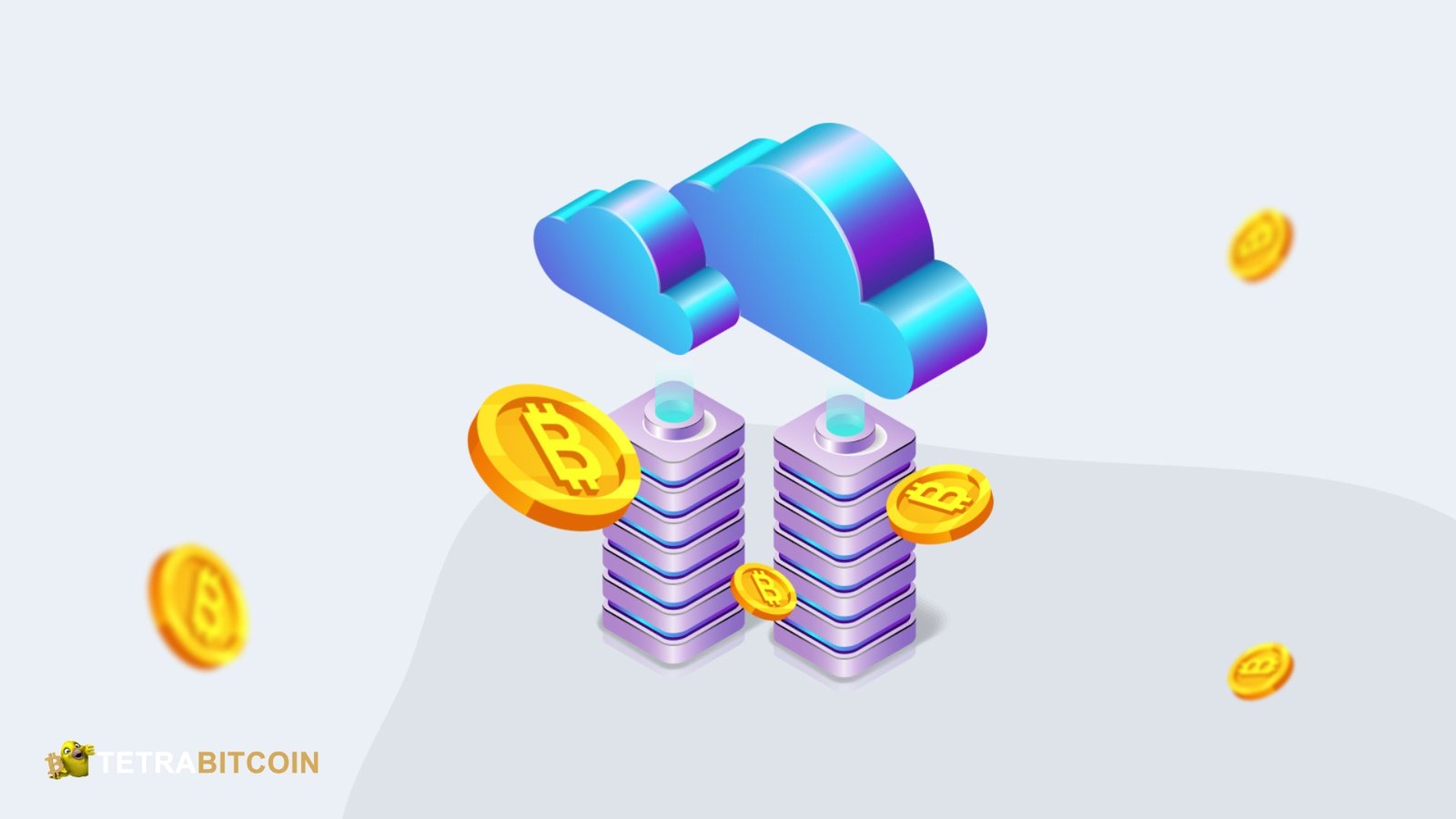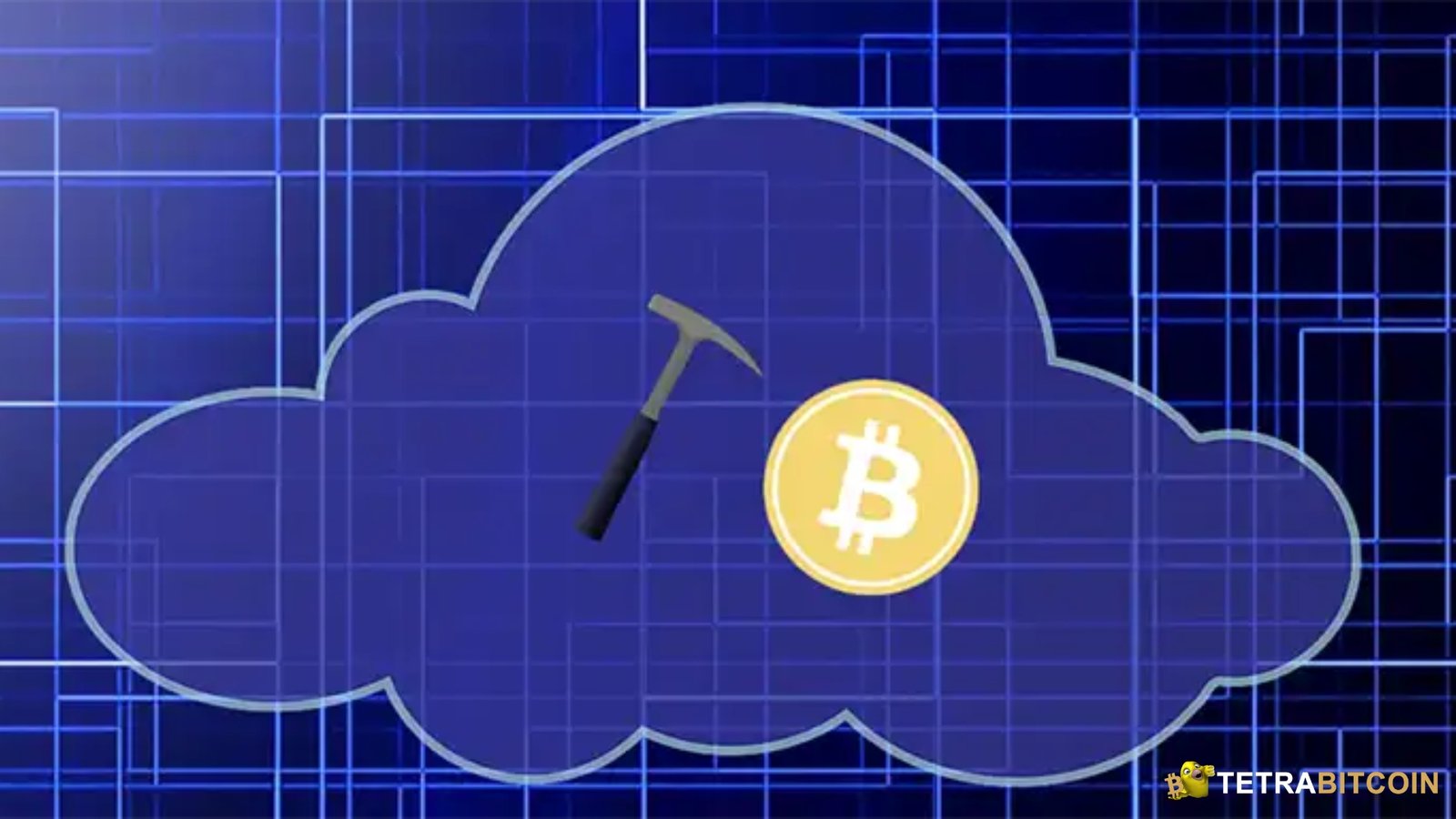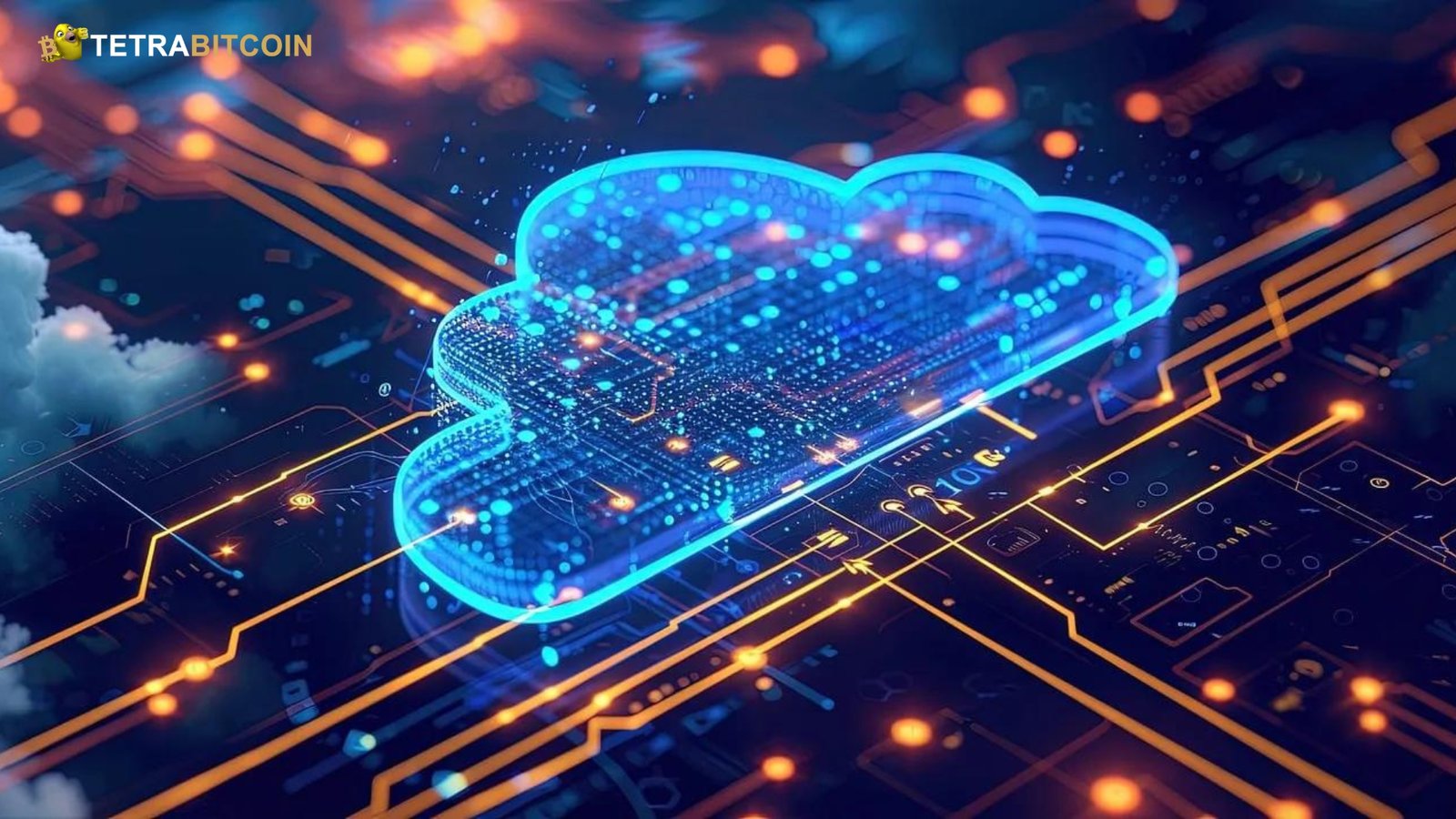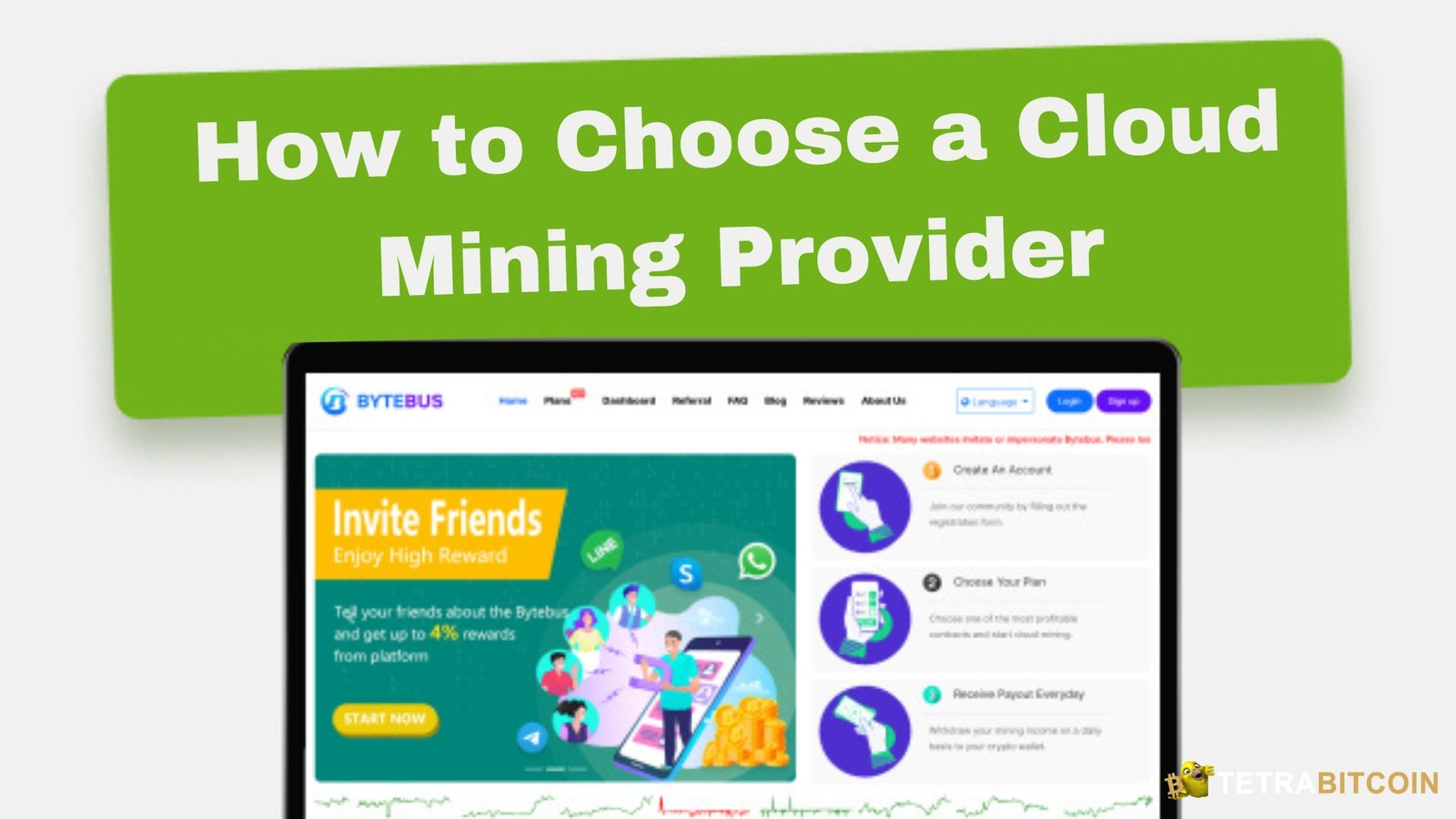Cloud Bitcoin mining has emerged as a popular alternative to traditional mining, allowing users to participate in cryptocurrency mining without owning or maintaining hardware. As the Bitcoin network grows and competition for mining rewards intensifies, cloud mining offers a more accessible and cost-effective option for individuals interested in earning Bitcoin. This article explores the fundamentals of cloud Bitcoin mining, its advantages, potential risks, and how the market has evolved in 2024.
What is Cloud Bitcoin Mining?
Cloud Bitcoin mining is the process of renting mining hardware or hash power from a third-party provider who runs and maintains the physical infrastructure. Instead of setting up and managing mining equipment themselves, users can purchase a contract with a cloud mining provider. The provider handles the electricity, cooling, maintenance, and operational costs while users receive a portion of the mining rewards based on the amount of hash power they have rented.
This method allows individuals to bypass many of the barriers to entry in traditional mining, such as the high initial costs of purchasing mining rigs (like ASIC miners), the ongoing costs of electricity, and the technical knowledge needed to run and maintain the machines.
How Does Cloud Bitcoin Mining Work?
In cloud mining, providers run large data centers filled with specialized Bitcoin mining equipment. These centers are often located in regions where electricity is cheaper or renewable, reducing the cost of operations. The cloud mining company then sells contracts to users based on the amount of computational power they wish to rent (measured in TH/s, or terahashes per second).
Once the user purchases a contract, the provider allocates a portion of the data center’s hash power to mine Bitcoin on their behalf. Mining rewards are then distributed among users based on the percentage of the hash power they own, minus any fees charged by the provider.
Types of Cloud Mining Contracts
There are generally two types of cloud mining contracts:
- Hosted Mining: The user rents physical mining hardware, but the provider hosts and maintains it in their facility. The user has more control over the mining process and may be able to select specific mining rigs.
- Hash Power Renting: Instead of owning specific hardware, users rent a portion of the hash power generated by the provider’s equipment. This is the more popular model due to its simplicity and lower costs.
Contracts may vary in duration, from short-term agreements lasting a few months to long-term contracts of several years. However, the profitability of cloud mining contracts depends on several factors, including the price of Bitcoin, network difficulty, and the fees charged by the provider.
Key Advantages of Cloud Bitcoin Mining
Low Barrier to Entry
Cloud mining significantly reduces the financial and technical barriers to starting Bitcoin mining. Traditional mining requires the purchase of expensive hardware and the setup of cooling and power systems, whereas cloud mining only requires purchasing a contract, making it accessible to a wider range of participants.
No Need for Technical Expertise
Mining cryptocurrencies like Bitcoin is highly technical, involving setting up specialized hardware and software. With cloud mining, users do not need to worry about the complexities of setting up, maintaining, or upgrading hardware. This makes it ideal for individuals who are interested in Bitcoin mining but lack technical expertise.
Energy Efficiency
Running mining equipment requires a lot of electricity, and in some cases, this can result in large monthly bills. Cloud mining eliminates this issue, as the operational costs are absorbed by the mining provider, often offset by the provider’s use of cheaper or renewable energy sources.
Scalability
Cloud mining allows users to scale their operations more easily than traditional mining. Users can start with a small contract and expand their mining power as they see fit without worrying about the physical limitations of running multiple rigs.
Potential Risks and Drawbacks
Profitability Risks
Cloud Bitcoin mining profitability depends heavily on Bitcoin’s price and the network’s mining difficulty. As the difficulty increases, mining rewards decrease, which can reduce the returns for users who have locked into long-term contracts. Additionally, cloud mining providers typically charge fees (maintenance, electricity, etc.), which can cut into profits.
Scams and Fraudulent Companies
The cloud mining industry has been plagued by scams and fraudulent operators, especially during Bitcoin price surges. Unscrupulous providers may take users’ money without actually mining any Bitcoin or delivering promised returns. It’s crucial to research cloud mining companies thoroughly before purchasing a contract, ensuring they are reputable and transparent in their operations.
Lack of Control
One of the downsides of cloud mining is that users have little to no control over the mining process. They cannot choose specific mining pools or hardware, and they are entirely reliant on the provider to operate efficiently and honestly. In cases where the provider fails to deliver on its promises, users have limited recourse.
Contractual Obligations
Cloud mining contracts are often non-refundable and binding for a specified period, meaning users are stuck with their investment even if market conditions change. If the price of Bitcoin drops significantly or network difficulty rises, cloud mining may become unprofitable, but users cannot cancel their contracts.
Evolution of Cloud Mining in 2024
As of 2024, cloud mining continues to evolve in response to changes in the cryptocurrency market and advances in technology. Several trends have shaped the industry over the past few years:
Rise of Green Mining
Sustainability has become a key focus in the cryptocurrency industry, and cloud mining providers are increasingly turning to renewable energy sources to power their data centers. Companies are building facilities in regions with abundant hydropower, solar, or wind energy to reduce their carbon footprint and attract environmentally conscious users.
Improved Transparency and Accountability
Reputable cloud mining companies are placing a greater emphasis on transparency, providing users with detailed information on their operations, including real-time data on their mining performance. Some platforms have implemented blockchain-based systems that allow users to track their mining rewards and ensure that they are being distributed fairly.
Regulatory Scrutiny
As Bitcoin and other cryptocurrencies gain wider adoption, regulators are paying closer attention to the cloud mining industry. Some countries have introduced regulations aimed at protecting consumers from fraud and ensuring that cloud mining companies operate fairly. However, the regulatory landscape remains fragmented, with different jurisdictions taking varied approaches to the industry.
Competition Among Providers
The cloud mining industry has become more competitive, with numerous providers offering a range of services to attract users. This competition has driven prices down and led to the development of more user-friendly platforms. However, it has also led to an increase in low-quality providers, making it essential for users to conduct thorough due diligence.
How to Choose a Cloud Mining Provider
When selecting a cloud mining provider, there are several key factors to consider:
Reputation and Reviews
Before signing a contract, it’s essential to research the provider’s reputation. Look for reviews from other users, check for any red flags such as delayed payments, and ensure that the company has a track record of reliable operations.
Contract Terms
Examine the terms of the contract carefully, paying close attention to the fees charged and the duration of the agreement. Some contracts may include hidden fees or unfavorable terms that could affect profitability.
Transparency
Choose a provider that is transparent about their mining operations. Reputable providers will offer real-time information on their mining performance, the energy sources they use, and their overall business practices.
Customer Support
Good customer support is crucial when dealing with cloud mining providers. Make sure that the company offers prompt and helpful responses to any questions or issues that may arise.
Conclusion
Cloud Bitcoin mining has become a popular alternative to traditional mining, offering individuals a way to participate in the Bitcoin ecosystem without the need for expensive hardware or technical expertise. While it has many advantages, such as low entry barriers and scalability, it also comes with risks, including profitability fluctuations and potential scams.
As the industry continues to evolve in 2024, improvements in transparency, sustainability, and regulation are helping to make cloud mining more secure and attractive to a wider audience. However, users must carefully evaluate providers and contracts to ensure they are making informed decisions and maximizing their chances of success in this competitive space.

